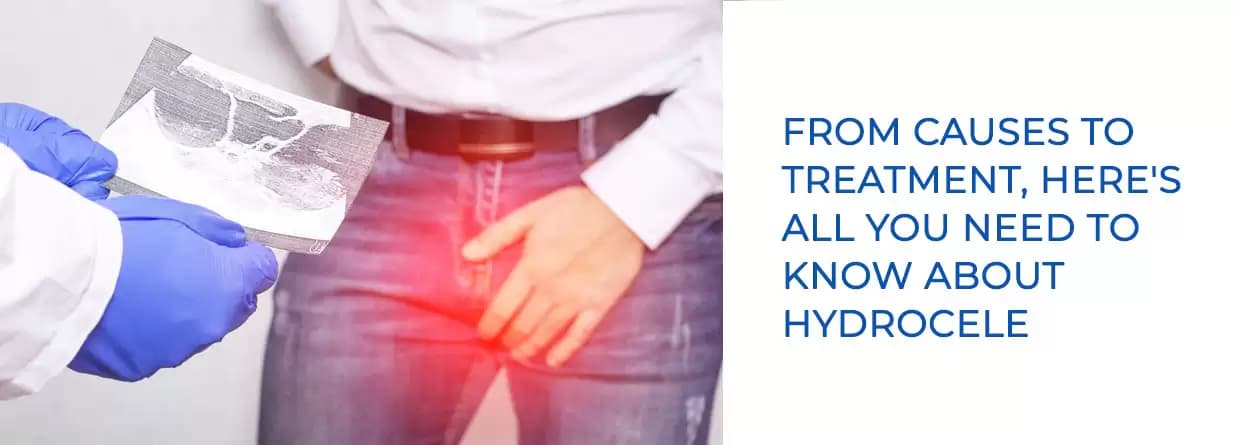
Hydrocele is a condition that commonly affects babies, and is marked by the development
Hydrocele is a condition that commonly affects babies, and is marked by the development of a fluid-filled sac around the testicle. The top hydrocele and prostate treatment doctor in Kolkata suggests that nearly 10 per cent of the male population is born with hydrocele, however, some might even develop it at a later stage. It is important to note that the problem is not life-threatening does not pose any serious threat to your testicles. Although in some cases it is completely painless and the patient may not require any treatment, it is not always the case. In some males, it can lead to scrotal swelling. The symptoms are quite similar to those of testicular cancer, it is important to see a doctor and get yourself evaluated.
The testicles of a boy descend into the scrotum from the abdomen, during the final stages of the pregnancy. During the developmental period, both testicles have fluid-containing sacs around them. The fluid is absorbed by the baby's body with time, during the first year post-birth, and as a result of this, the sac shrinks and closes. However, in the case of babies with hydrocele, this does not happen as a result of which they continue to have the sac even after their first birthday.
As per the top urologist in Kolkata, the problem may not necessarily be present since birth and some men can develop it later. This is most likely to happen with men above 40 years of age. If you are wondering why this happens, it can possibly be because the channel through which the testicles descend is not properly closed, or has reopened, allowing the free flow of abdominal fluid into the scrotum. It may be the result of an injury or chronic infection involving the scrotum and testicles.
Hydrocele is broadly classified into two different types - non-communicating hydrocele and communicating hydrocele.
In the case of non-communicating hydrocele, the sac closes within the first year of birth but the floor is not absorbed, which should have happened within the first year following the birth of the child.
Communicating hydrocele is marked by the inability of the sac to close properly, leaving behind a passage for the free flow of abdominal fluid.
One of the most important things that are to be noted here is that hydrocele does not cause any pain or discomfort in the majority of the cases, and the only evident symptom is swelling in the scrotum. If we talk about adults, they are likely to feel heaviness in the scrotum which is due to the accumulation of fluids. The problem tends to worsen during the morning.
Most parents may find it difficult to detect the problem because small children are not often able to explain the symptoms. If your toddler has pain and discomfort, he is likely to be cranky and may even hold their scrotum. It is important that you take this sentence into account and consult a specialist to get him evaluated.
Hydrocele treatment in Kolkata is offered at all the leading hospitals. In the case of small children, if the problem is left untreated for a long, it can increase in size giving rise to the need for surgery. If we talk about adults, the problem may go away within 6 months, however, if it doesn't, you will need surgery.
To know more about hydrocele and explore your treatment options, consult a specialist today.
Similar Renal Sciences Blogs
Book Your Appointment TODAY
© 2024 CMRI Kolkata. All Rights Reserved.